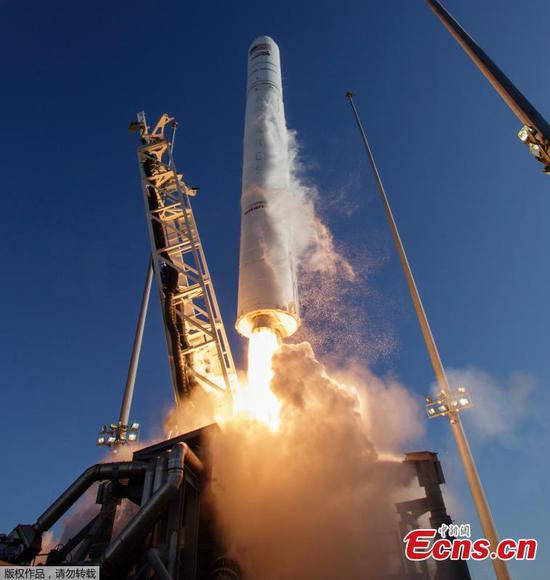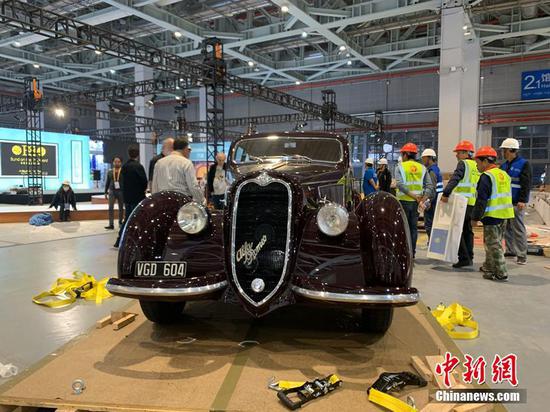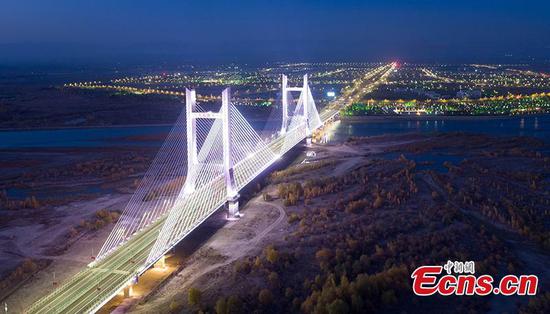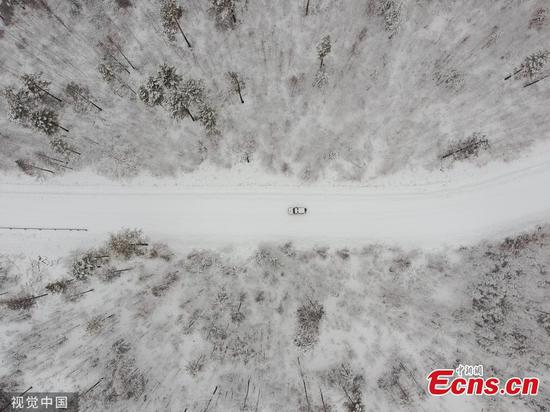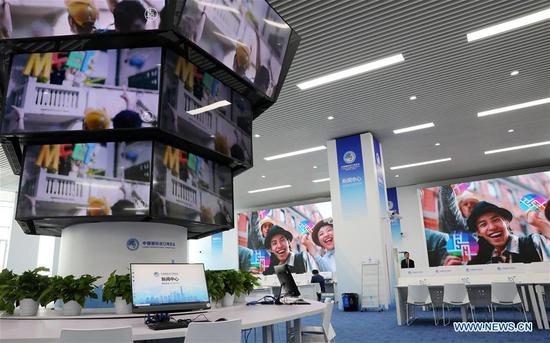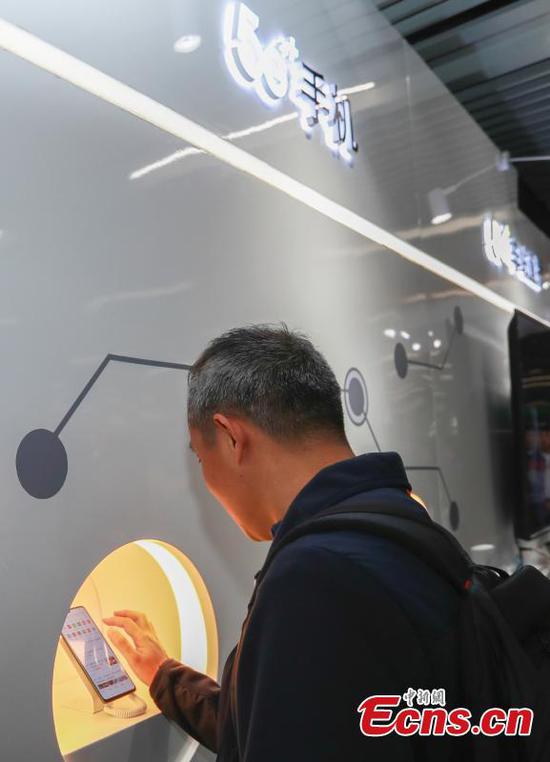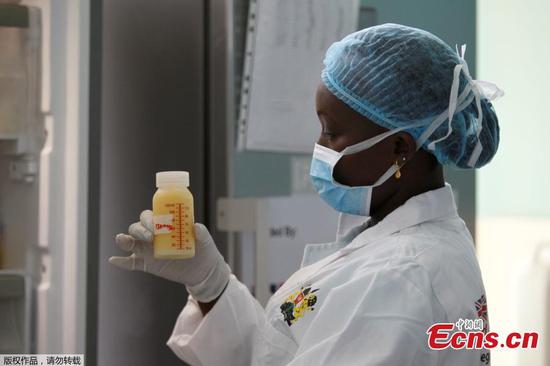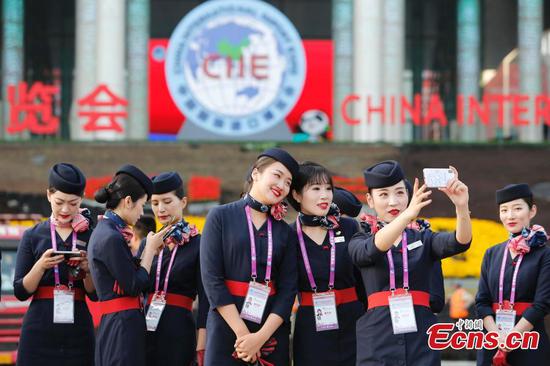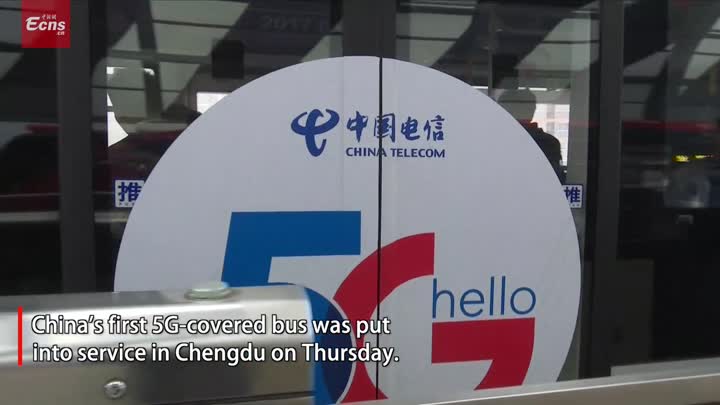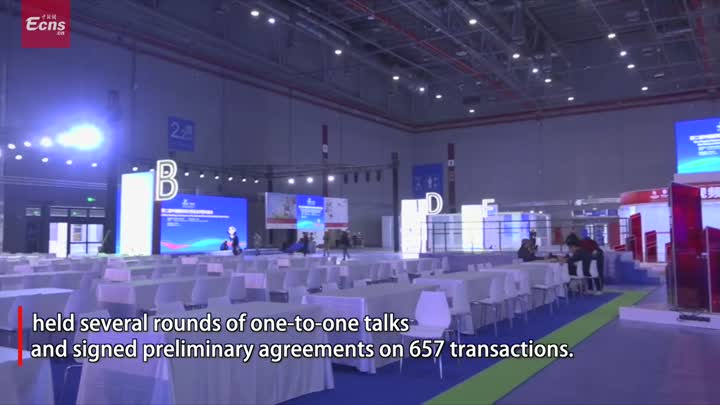
People experience an AI Panda Bus made by DeepBlue Technology at the 3rd World Intelligence Congress in Tianjin in May. [Photo provided to China Daily]
DeepBlue's services and products redefine smart tech, find takers everywhere
Public transportation is a critical part of any city's infrastructure. Yet, if its advancement does not keep pace with technological development, artificial intelligence can lend a helping hand.
In the eyes of DeepBlue Technology, transportation services are straining under the heavy load of ever-increasing urban populations, and commuters are being driven to consider other forms of transport.
For transport providers such as city governments and bus operators, one major pain point is that the industry is considered a loss-making venture that, however, benefits the wider public, said Chen Haibo, founder and CEO of DeepBlue, a Shanghai-based AI startup.
"Some efforts have been made to address this issue, such as privatization and price discrimination, but these solutions do not tackle the root cause, which is that the bare-bones services offered often do not meet commuter needs," Chen said.
Founded in 2014, DeepBlue is sparing no effort in taking its smart transportation solution, known as Panda Bus, overseas. It recently secured a trial agreement in Greece and a $10 million deal to supply buses to Bangkok, Thailand.
The AI Panda Bus is DeepBlue's most well-known product and is a large, AI-enabled, autonomous-driving, luxurious and heavy-duty commuter bus. Measuring 12 meters, it is powered by a lithiumion phosphate battery and has an autonomous driving level between level 3 and level 4, meaning cars do not normally require human interaction in most circumstances.
The vehicle uses a combination of AI technologies including computer vision, biometrics, autonomous driving and voice recognition to give buses a digital makeover. The fleet is already operating in 10 cities across China, with the latest expansion in Shanghai in August.
"Applying AI to public needs such as transportation is one way in which the benefits of AI can be enjoyed by everyone in the city, all around the world," Chen noted.
In the latest overseas push, the Chinese startup inked an agreement with the Athens-based Aristotle University of Thessaloniki (AUTH) in June, to accelerate Greece's digital transformation, as part of the Belt and Road Initiative.
Their collaboration will see Deep-Blue opening a research and innovation hub for AI-related new technologies, where international projects will be conducted for three years.
The AI industry is projected to contribute up to an additional $195 billion to the Greek economy over the next 15 years, according to latest estimates by consultancy Accenture and tech giant Microsoft.
"We need to carry on this illustrious legacy and the spirit of Greek innovation remains strong in our young people and our tech industry. Such partnerships with companies like DeepBlue will put us in a strong position to take advantage of the AI-enabled future," said Eleftherios Angelis, dean of the School of Informatics at the AUTH.
12Next >>|

A man uses a smart vending machine installed on a DeepBlue's AI Panda Bus. [Photo by Jia Chenglong/For China Daily]
Key breakthroughs have been made in academic collaboration. Under an agreement signed in September, DeepBlue will cooperate with scientists at the National University of Singapore to work in visual semantic reasoning, and semantic map and technology of autonomous positioning and navigation.
"We take this seriously because a lot of our core technologies come from working together with universities such as the NUS to harness important research results and apply them to everyday products," said Chen.
Huang Zhiyong, director of the Computing Translational Research and Development Centre under the NUS School of Computing, said: "Fundamental research into AI technology such as computer vision is a cornerstone. This strategic partnership will...create novel solutions that will benefit the society."
DeepBlue's international footprint can be traced back to last year, when it built three joint labs with the National Laboratory of Luxembourg, covering self-driving, intelligent manufacturing, and data and financial security.
Later, it inked an agreement this March with the Foundation Magna Grecia, an Italian financial institution, to create a local subsidiary and help Italian cities embrace the digital dimension using AI.
Chen said the company has entered into agreements with entities in Greece and Italy in the field of intelligent cities, aiming to introduce its indigenous palm vein recognition system in at least three European cities this year.
According to him, palm vein recognition is favored in these nations in light of privacy protection laws and is expected to be applied in the customs and medical realms.
But for AI to truly make progress, the technology should not function in pure prototypes in the lab. Instead it should serve to revolutionize daily lives and make businesses more profitable, Chen said.
Take the smart bus example: apart from self-driving, the vehicle promises to monetize the downtime of a daily commute, which Chen deemed as a genuine game-changer.
These include the installation of smart vending machines on buses and individual screens that entertain passengers with advertisements and other information.
"Commuters can also enjoy a better ride experience through personalized content and convenience," Chen said. "Adding in revenue from advertising content, bus providers can turn a traditionally loss-making venture into a profitable one, and that's where we believe the real innovation lies," he said.
"Our thinking around AI should be one of partnership and augmentation. AI should be used to help us make our work easier, and also allow us to pursue higher-order work."
|<













